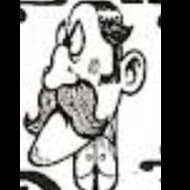NACC work to become more challenging after new law on asset disclosure
-
Recently Browsing 0 members
- No registered users viewing this page.
-
Topics
-
-
Popular Contributors
-
-
Latest posts...
-
26
What to do in a Sisaket village for a week?
Fishing, bicycle riding, bird spotting, drone flying (imo - with cameras is best), teach him to swim (or at least be able to float). Air rifle shooting or archery (at targets) is really popular with boys (IME). -
19
The human body: Between 10 to 30 thousand deseases possible. Cheers.
Research on new antibiotics is ongoing and new antibiotics are developed all the time. As this thread does seem to have an actual point and is attracting the usual nonsense agendas, it is closed. -
345
Trump's crackdown on LA protests is pure hypocrisy
So you do not know, I thought not. I know everyone has due process rights, I never said they did not. And while those rights are the same for everyone in a criminal court, they are not the same not the same in an immigration court. Secondly, anyone that has had a deportation order issued against them has already had due process in regard to whether or not they can be deported. -
216
LA Mayor Bass statement on LA ICE roundup of Illegals…
LAPD chief denies ICE director's claim of 2-hour response time during protest The city's top cop said Sunday night that federal authorities did not brief the Los Angeles Police Department on the clandestine raids that have descended the city into chaos ... "McDonnell made it clear that the LAPD does not make immigration arrests, but the department does not prevent federal officials from doing their job either. "They have their mission...they have every right to do that," McDonnell said of the Immigration and Customs Enforcement agents who have fanned out across L.A., ripping people out of their workplaces and descending on Home Depot parking lots. But, McDonnell said, federal officials did not brief his department, which made it difficult to respond to the mobs of people who began to protest. [emphasis added] https://lamag.com/news/lapd-chief-jim-mcdonnell-says-violence-i-have-seen-is-disgusting-recounting-attacks-on-cops -
72
I need rotator cuff surgery my insurance turned me down where to go for less than 350,000b?
Yeah just mentioned him in DM. I thought it was Kent but the accent may have thrown me off. He crashed? oh man. He was fast downhill too. Very impressive man. -
1,176
Updates and events in the War in Ukraine 2025
Go on Trump, take him up on his offer! Oleksandr Usyk has challenged Donald Trump to spend a week in Ukraine, at his home, to witness first hand the realities of the conflict. With the conflict now past its third year since Vladimir Putin's full-scale invasion, Usyk believes Trump needs a deeper understanding of the situation. Speaking to the BBC, Usyk, the current WBC, WBA, and WBO heavyweight champion, painted a stark picture of life in Ukraine. Ukrainian boxer Oleksandr Usyk sends invitation to Trump over Russian war
-
-
Popular in The Pub







.thumb.jpeg.d2d19a66404642fd9ff62d6262fd153e.jpeg)





.thumb.jpg.3ee24d9400fb02605ea21bc13b1bf901.jpg)

Recommended Posts
Create an account or sign in to comment
You need to be a member in order to leave a comment
Create an account
Sign up for a new account in our community. It's easy!
Register a new accountSign in
Already have an account? Sign in here.
Sign In Now